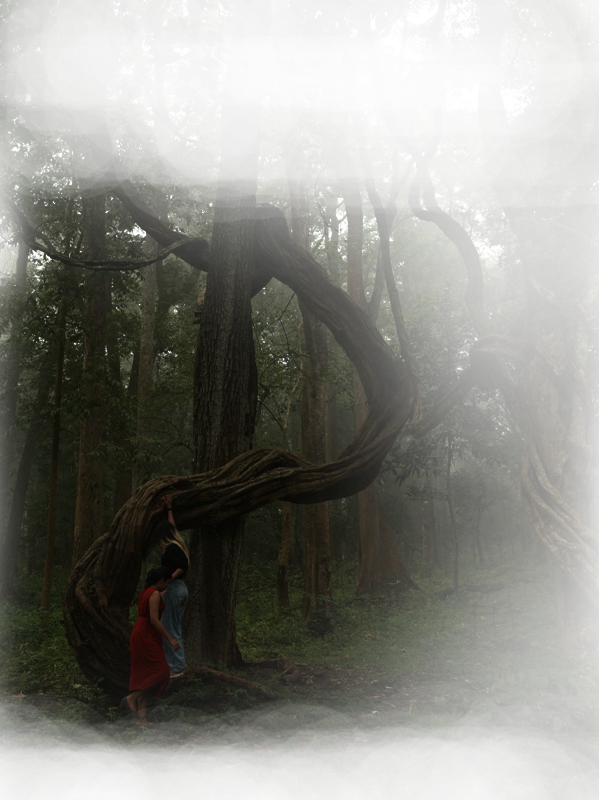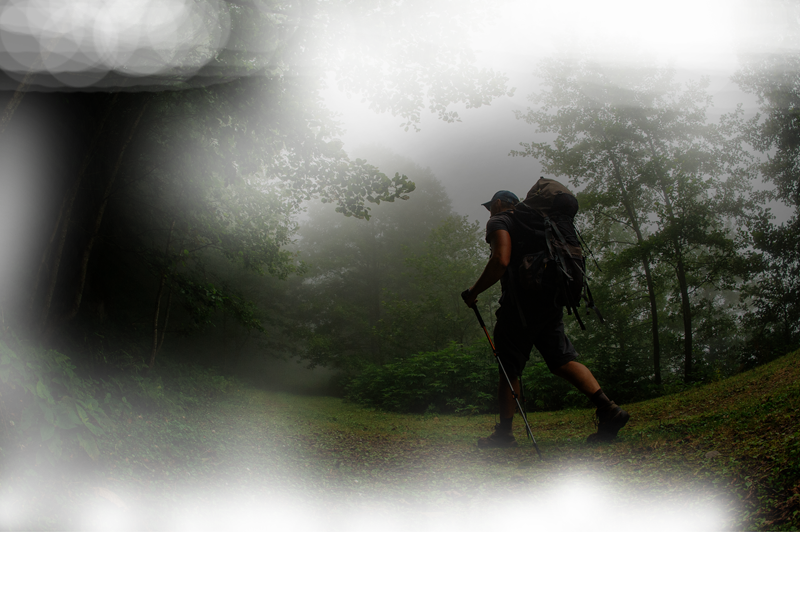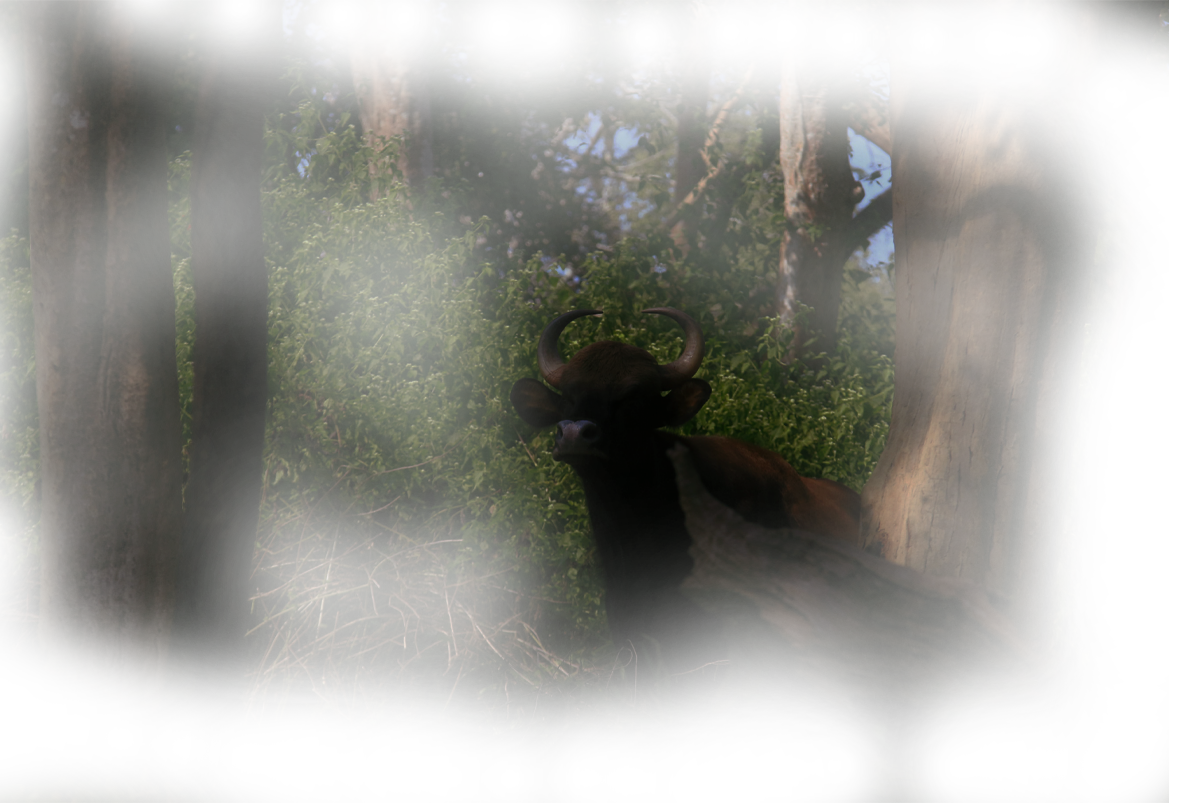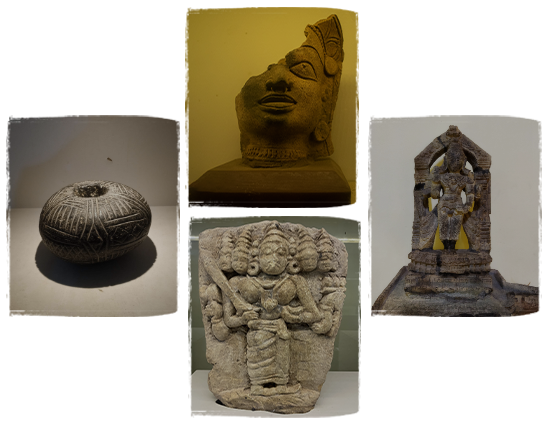ULLAMAN (FOUR HORNED ANTELOPE) presence is confirmed in the wild life sanctuary of Wayanad.
It's also the home for many endangered species. It's also the shelter for largest population
of Asian Elephants and Tigers.
The Elephants and Tigers abundance is the
falgship of these forest region
The most remarkable things about this wild life belt is it the habitat of endangered vulture population .
Other mammals found in the wild life belt here are Leopards, Jungle Cats, Leopard cats, Spotted deer, Sambardeer, Gaur, Sloth bear, Wild boar, Indian pangolin, Stripe-necked mongoose etc.

Along the banks of the Kabini River lie uninhabited islands, home to rare medicinal herbs and abundant wildlife. After crossing the river on a traditional raft, you enter a world that feels untouched by time, where silence and nature surround you. This is not a typical picnic spot, it is a sacred place where visitors are expected to move gently, respecting the delicate balance of the ecosystem.
Meandering rivers reflect the branches of ancient trees, and majestic elephants roam freely, creating a magical experience for anyone who loves wildlife. Birds sing from hidden perches, and every step brings a new wonder of this pristine environment. For travelers who want to enjoy this beauty with comfort, the best luxury resort near Kabini and Nagarhole National Park Wayanad offer a perfect retreat. Here, you can relax in style while staying close to nature, experiencing the forest’s charm without disturbing it. It’s a place that reminds us that some of the world’s most enchanting spots are still untouched, waiting for those who love and respect nature.


Out team of Naturalists can assist and guide you in exploring activities in the wild. As
a responsible tourist,
please ensure that you follow the rules
 Stay on Designated Trails : Stick to
designated paths to avoid disturbing the natural habitat and prevent soil erosion.
Stay on Designated Trails : Stick to
designated paths to avoid disturbing the natural habitat and prevent soil erosion.
 Litter-Free Environment : Pack out
all trash and dispose of it properly. Leave no trace of your visit.
Litter-Free Environment : Pack out
all trash and dispose of it properly. Leave no trace of your visit.  No Feeding Wildlife : Do not feed
animals; it disrupts their natural behavior and can be harmful to their health.
No Feeding Wildlife : Do not feed
animals; it disrupts their natural behavior and can be harmful to their health.
 No Picking Plants : Refrain from
picking flowers or plants; it can damage the ecosystem.
No Picking Plants : Refrain from
picking flowers or plants; it can damage the ecosystem.  Campfire Restrictions : Refrain
from picking flowers or plants; it can damage the ecosystem.
Campfire Restrictions : Refrain
from picking flowers or plants; it can damage the ecosystem.  Respect Wildlife : Keep a safe
distance from animals. Do not approach or disturb them.
Respect Wildlife : Keep a safe
distance from animals. Do not approach or disturb them.  Noise Control : Keep noise to a
minimum to avoid startling wildlife and maintain a peaceful environment for others.
Noise Control : Keep noise to a
minimum to avoid startling wildlife and maintain a peaceful environment for others.
 Respect Local Cultures : Be
respectful of indigenous communities and their traditions if you encounter them.
Respect Local Cultures : Be
respectful of indigenous communities and their traditions if you encounter them.
 Permit and Regulations : Follow
all permits, regulations, and guidelines set by the park or forest authorities.
Permit and Regulations : Follow
all permits, regulations, and guidelines set by the park or forest authorities.
 Leave No Mark : Minimize your
impact on the environment by leaving everything as you found it.
Leave No Mark : Minimize your
impact on the environment by leaving everything as you found it.  Conserve Water : Use water
sparingly, especially in areas with limited water resources.
Conserve Water : Use water
sparingly, especially in areas with limited water resources.  Wildlife Photography : Be patient
and respectful when taking photos of wildlife. Use zoom lenses to avoid getting too
close.
Wildlife Photography : Be patient
and respectful when taking photos of wildlife. Use zoom lenses to avoid getting too
close.  Educate Yourself : Learn about
the local flora, fauna, and culture before visiting.
Educate Yourself : Learn about
the local flora, fauna, and culture before visiting. 

The archiolegical muselum exhibits stone weapons ,idols ,carvings ,potteries of magalithic age , hunting equipments ,worship idols of ancient men etc .The collections are kept in 4 blocks
 Veerasmruthi
Veerasmruthi  Gothrasmruthi
Gothrasmruthi  Devasmruthi
Devasmruthi  Jeevanasmruthi
Jeevanasmruthi The Kattunayakan tribal community, relatively isolated from the outside world, gathers honey from the forest. Forest Eco Development Committees, organized by the Forest Department, collaborate to establish the brand "Wild Gold." This honey is renowned for its medicinal qualities and exceptional purity. It is readily available in the Eco Shops within Wayanad Wildlife Sanctuary
